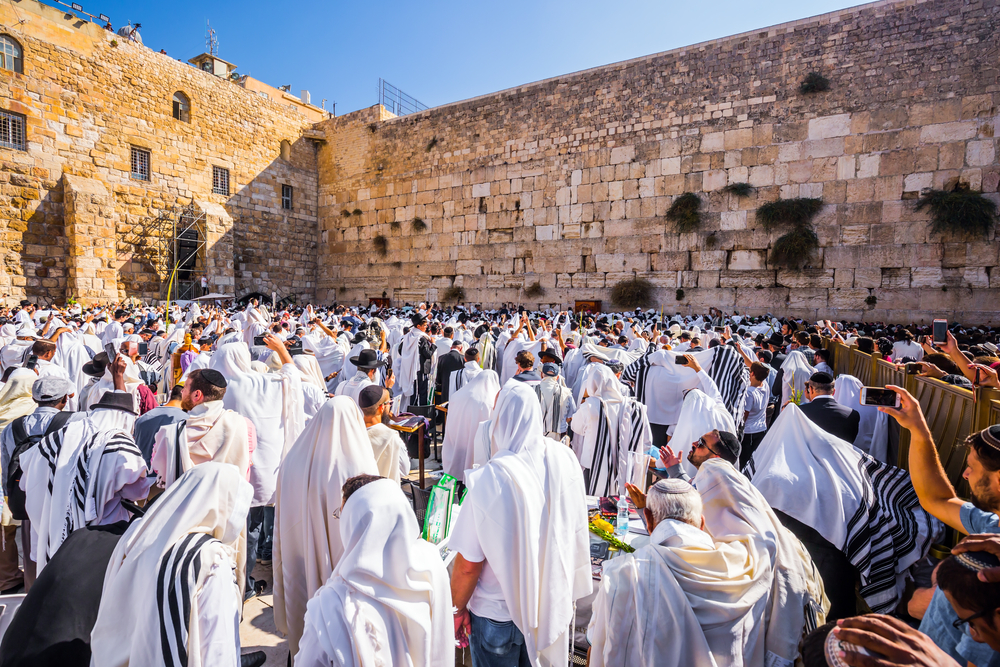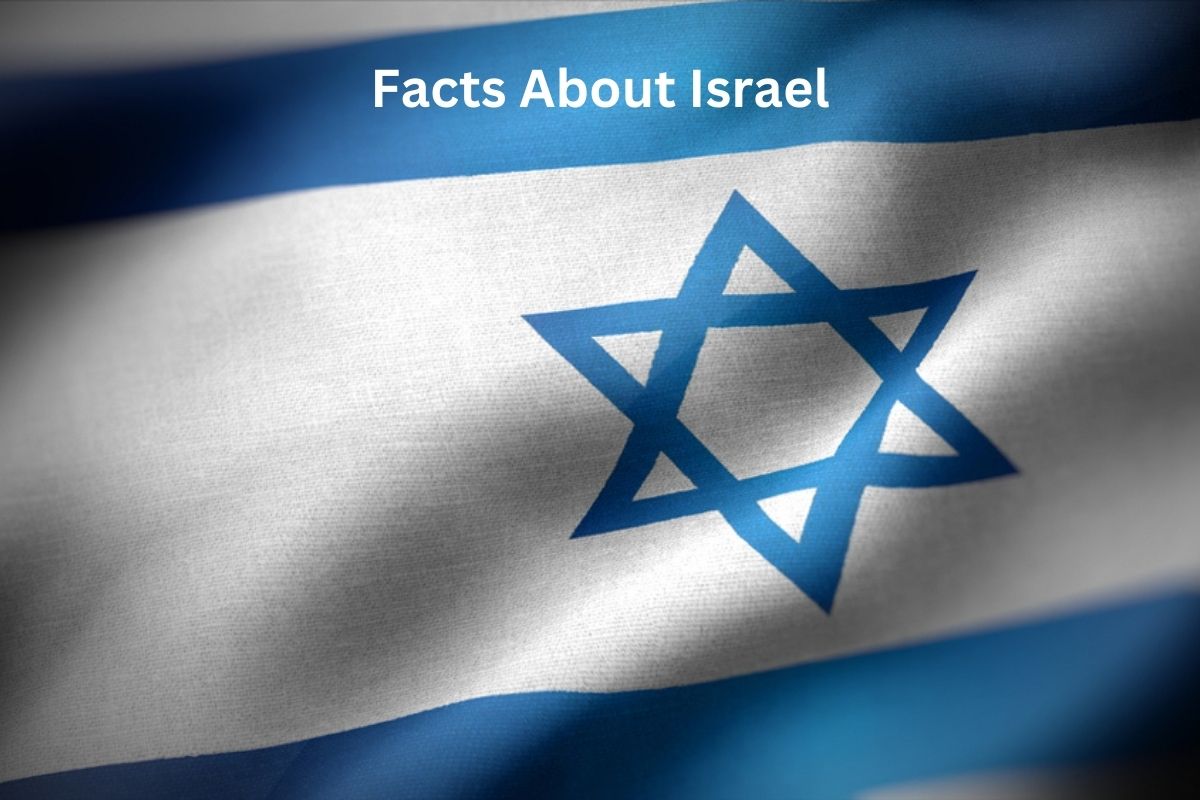Israel, located in the Middle East, is a nation with a rich history and complex geopolitical landscape.
From its declaration of independence in 1948 to its role as a technology hub in the 21st century, Israel has made significant contributions in various fields, including technology, agriculture, and culture.
This small but diverse nation is also known for its religious significance to Judaism, Christianity, and Islam, and it remains at the center of ongoing regional conflicts, notably the Israeli-Palestinian conflict.
In this introduction, we’ll explore key aspects of Israel’s history, society, and challenges, shedding light on its unique position in the global community.
Israel Facts
1. Location: Israel is in the Middle East
Israel is situated in the Middle East, specifically in the southwestern part of the Asian continent.
It shares its borders with several countries, including Lebanon to the north, Syria to the northeast, Jordan to the east, and Egypt to the southwest.
Also Read: Kings of Israel Timeline
To the west, Israel has a coastline along the Mediterranean Sea, which is about 273 kilometers (170 miles) long.
2. Capital: Jerusalem
Jerusalem is the capital of Israel. It is one of the oldest cities in the world and holds great religious significance for Judaism, Christianity, and Islam.
However, the status of Jerusalem is a complex and contentious issue, as both Israelis and Palestinians claim it as their capital. This has been a major point of dispute in the Israeli-Palestinian conflict and a significant diplomatic challenge in the region

3. Independence: Declared in 1948
Israel declared its independence on May 14, 1948. This declaration came after the end of British rule in Palestine and the withdrawal of British forces.
Also Read: Timeline of Palestine History
The establishment of Israel was a pivotal event in the Middle East, leading to a conflict between the newly formed state and its Arab neighbors, which became known as the Arab-Israeli War of 1948.
The declaration of independence marked the birth of modern Israel as a sovereign nation, and it has since played a central role in the geopolitics of the region.
4. Population: Over 9 million
Israel had a population of over 9 million people, the population of Israel is diverse, with various ethnic and religious groups.
The largest ethnic group is Jewish, but there is also a significant Arab minority, including Muslim, Christian, and Druze communities.
Israel’s population is known for its cultural diversity, with people from different backgrounds living and coexisting in the country.
5. Languages: Hebrew, Arabic, and English
Israel has three official languages: Hebrew, Arabic, and English.
- Hebrew is the most widely spoken language and holds a special place in Israeli culture as the revival of the ancient Hebrew language played a significant role in the establishment of the modern state of Israel.
- Arabic is also an official language, reflecting the presence of Arab communities in Israel.
- English is commonly used for business, education, and international communication, making Israel a linguistically diverse society.

6. Religions: Judaism, Christianity, Islam
Israel is a significant center for three major monotheistic religions:
- Judaism: Israel is the homeland of the Jewish people and holds immense religious and historical significance. Jerusalem, particularly the Western Wall, is one of the holiest sites in Judaism.
- Christianity: Many Christian holy sites are located in Israel, including the Church of the Holy Sepulchre in Jerusalem, believed to be the site of Jesus’ crucifixion and resurrection.
- Islam: Jerusalem is also important in Islam, with the Dome of the Rock and Al-Aqsa Mosque located in the Old City. These sites are among the holiest in Islam after Mecca and Medina.
The coexistence of these three major religions in such a small geographical area gives Israel a unique cultural and religious diversity that attracts visitors and pilgrims from around the world.
It also contributes to the complexity of the Israeli-Palestinian conflict, as these religious sites are often at the center of disputes and tensions in the region.
7. Government: Parliamentary democracy
Israel is a parliamentary democracy. Its political system is characterized by a multi-party system and proportional representation in the Knesset, the country’s unicameral legislature. The President of Israel is the head of state, while the Prime Minister is the head of government.
The Knesset, with 120 members, is responsible for making and passing laws. Israel’s political landscape is known for its diversity, with a range of political parties representing various ideologies and interests.
8. Technology Hub: Known for tech innovation
Israel is often referred to as the “Startup Nation” due to its vibrant and innovative technology sector. It has a thriving high-tech industry with a focus on areas such as cybersecurity, artificial intelligence, biotechnology, and renewable energy.
Israeli tech companies and startups have gained global recognition for their innovations and have attracted substantial investment from around the world.
The country’s ecosystem of innovation is supported by research institutions, venture capital, and a culture that encourages entrepreneurship.
9. Geography: Diverse landscapes
Israel’s geography is diverse and includes several distinct regions:
- Coastal Plains: These areas are fertile and densely populated, home to major cities like Tel Aviv and Haifa.
- Mountainous Regions: Israel has mountain ranges, including the Carmel Mountains and the Judean Hills.
- Desert: The Negev Desert covers a significant portion of southern Israel, characterized by arid landscapes and unique geological formations.
- Jordan Valley: This fertile valley runs along the eastern border of Israel, along the Jordan River.
- Dead Sea: The Dead Sea, located in the Jordan Rift Valley, is known for its high salinity and buoyancy, making it a popular tourist attraction.

10. Military Service: Mandatory for both genders
Israel has mandatory military service for both men and women. At the age of 18, Israeli citizens are typically conscripted into the Israel Defense Forces (IDF).
Military service is a significant part of Israeli society, and it plays a crucial role in the country’s security due to its geopolitical situation.
After their mandatory service, many Israelis remain in the reserve forces, which can be called upon in times of crisis. Military service is seen as a unifying experience and a key aspect of national identity in Israel.
11. UNESCO Sites: Several World Heritage Sites
Israel is home to several UNESCO World Heritage Sites, recognized for their cultural and historical significance:
- Masada: Located atop a rugged plateau in the Judean Desert, Masada is an ancient fortress and one of Israel’s most iconic historical sites. It is known for the Jewish revolt against the Roman Empire in the 1st century CE and the dramatic siege that took place there.
- Old City of Acre (Akko): Acre is a historic city on the Mediterranean coast, known for its well-preserved Crusader-era architecture, Ottoman-era buildings, and an ancient port.
- Bahá’í Gardens in Haifa: These stunning terraced gardens surround the Shrine of the Báb, a significant holy site for the Bahá’í Faith. The gardens offer panoramic views of Haifa and the Mediterranean Sea.
12. Agriculture: Advanced farming techniques
Despite its predominantly arid and semi-arid climate, Israel has made remarkable advancements in agriculture through innovative technologies and practices. Notable achievements include:
- Drip Irrigation: Israeli engineers developed drip irrigation, a highly efficient method of delivering water directly to the roots of plants, conserving water and increasing crop yields.
- Desert Farming: Techniques like hydroponics and greenhouses have enabled the cultivation of crops in arid regions like the Negev Desert.
- Innovative Crop Varieties: Israeli scientists have developed drought-resistant and saline-tolerant crop varieties suitable for challenging environments.
13. Conflict: Ongoing regional conflicts
Israel has been involved in long-standing conflicts with its neighbors, notably the Israeli-Palestinian conflict. The key points regarding this conflict include:
Israeli-Palestinian Conflict: This protracted dispute involves the Israeli state and the Palestinian territories in the West Bank, Gaza Strip, and East Jerusalem. It revolves around issues such as borders, sovereignty, the status of Jerusalem, and the rights of Palestinian refugees.
Peace Efforts: Numerous international efforts have been made to negotiate a peaceful resolution, including the Oslo Accords and the Camp David Accords. However, a lasting resolution has remained elusive, resulting in ongoing tensions and periodic outbreaks of violence.
Geopolitical Complexity: The Israeli-Palestinian conflict is just one facet of the broader Middle East conflict landscape, with regional power dynamics, religious factors, and international interests contributing to its complexity.
